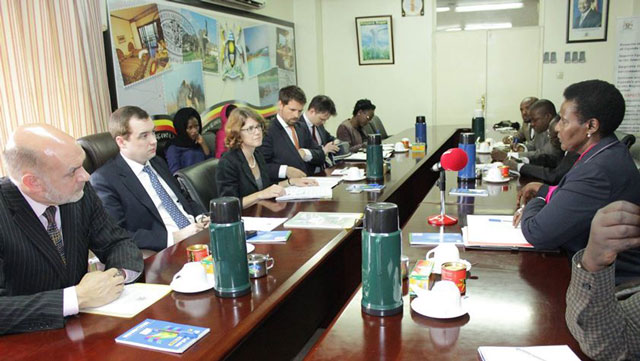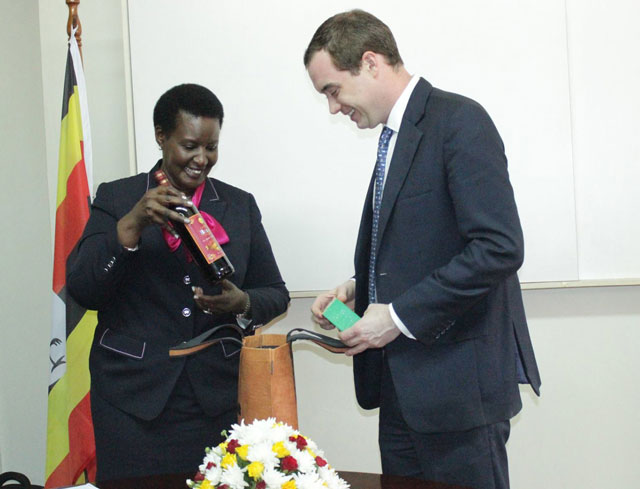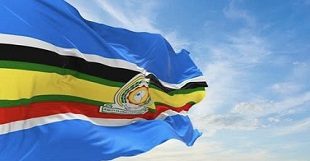
Uganda is exporting and importing less from the UK, but their respective ministers in charge of trade are optimistic this can be changed for the benefit of both nations.
Although the UK has a strong bilateral relationship and a significant development partnership with Uganda, trade between the two has slowed down in the recent years with Uganda’s exports to the UK falling from $47.5 million in 2013 to $29.2 million in 2015. Uganda mainly exports coffee and spices to the UK.
Uganda’s imports from the UK have also fallen drastically from $103 million in 2013 to $83.4 million in 2015.
The trade figures were revealed at a meeting in Kampala on Friday between the Minister of Trade, Industry and Cooperatives Amelia Kyambadde and her visiting UK minister James Wharton who is in charge of Department for International Development (DFID).

Wharton said his government is working towards bringing more UK companies to start up businesses in Uganda, in order to bring back the enthusiasm in trade between the two countries.
The two ministers said Uganda and the United Kingdom (UK) have agreed to re-ignite their trade relations following the reported slowdown in business between the two countries.
Wharton also hinted on the Economic Partnership Agreement which has hit a stalemate after Tanzania pulled out, saying the UK remains keen and supportive to the EPA despite Brexit.
Kyambadde hailed the UK for extending both budgetary and project aid to Uganda through the Department for International Development (DFID). This goes to support in the areas of education, civil service reform, transport, health, the judiciary, defence and the police.
- Trade data Between UK and Uganda USD “000”
| 2013 | 2014 | 2015 | |
| Imports | 103,366 | 99,392 | 83,476 |
| Exports | 47,518 | 33,274 | 29,271 |
| Trade Blc | -55,848 | -66,118 | -54,205 |
On the challenges the country is facing, Kyambadde identified “limited resource envelops to engage in the rollout of these very important programs. You note that most of them require development of physical infrastructure and are of Information Technology in nature hence the need for heavy capital outflow.”
She hailed DFID support provided by Trade Mark East Africa (TMEA), which was highlighted with today’s launch at Uganda Revenue Authority of several trade facilitation projects, especially the Automated System for Customs Data (ASYCUDA).
She listed key projects, the One Stop Border Posts development (OSBP), Electronic Cargo Tracking System (ECTS), the new Authorized Economic Operator program (AEO) and Electronic Single Window (e-SW). She said the projects will lead to a reduction in clearance time by over 83% for instance in Mutukula, from 45 hours to 8 hours, and a 79% reduction at Busia, from 14 hours to 3 hours.
There will be a reduction in transit time from eight days in 2011 to tw0 days due to implementation of Electronic Cargo Tracking System now rolled out to the region hence generating approximately USD $25M savings to business in the year 2015 alone.
 The Independent Uganda: You get the Truth we Pay the Price
The Independent Uganda: You get the Truth we Pay the Price


